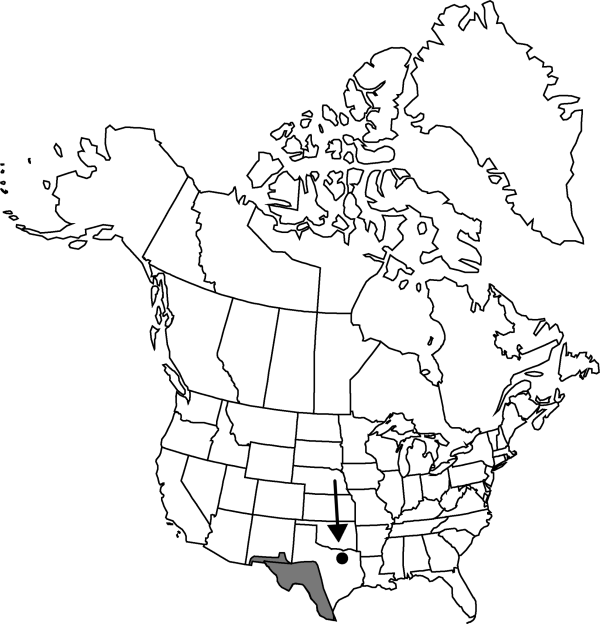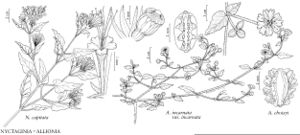Nyctaginia capitata
in A. P. de Candolle and A. L. P. P. de Candolle, Prodr. 13(2): 429. 1849.
Stems repeatedly forked, 10–90 cm. Leaves: petiole 1–8 cm; blade subtriangular, rarely ovate, 3–13 × 1–11 cm, base broadly obtuse, truncate-cordate, or occasionally hastate, margins sinuate and undulate, often crispate, apex acuminate or acute, surfaces glabrous or sparsely viscid-villous adaxially, glaucous abaxially, veins usually sparsely viscid-villous. Inflorescences: peduncle 2–14 cm; involucral bracts 6–15 mm. Flowers: perianth of chasmogamous flowers bright orange-red, mottled or streaked with yellow, rarely all yellow, 20–40 × 10–16 mm; stamens nearly 2 times length of perianth. Fruits 5–8 × 3.5–4 mm.
Phenology: Flowering late spring–early fall.
Habitat: Dry, sandy or loamy soils, arid grasslands, shrublands, roadsides
Elevation: 200-1600 m
Distribution

N.Mex., Tex., Mexico (Chihuahua, Coahuila, Durango, Nuevo León).
Discussion
Nyctaginia capitata apparently has been introduced in the vicinity of Dallas, Texas.
Selected References
None.
